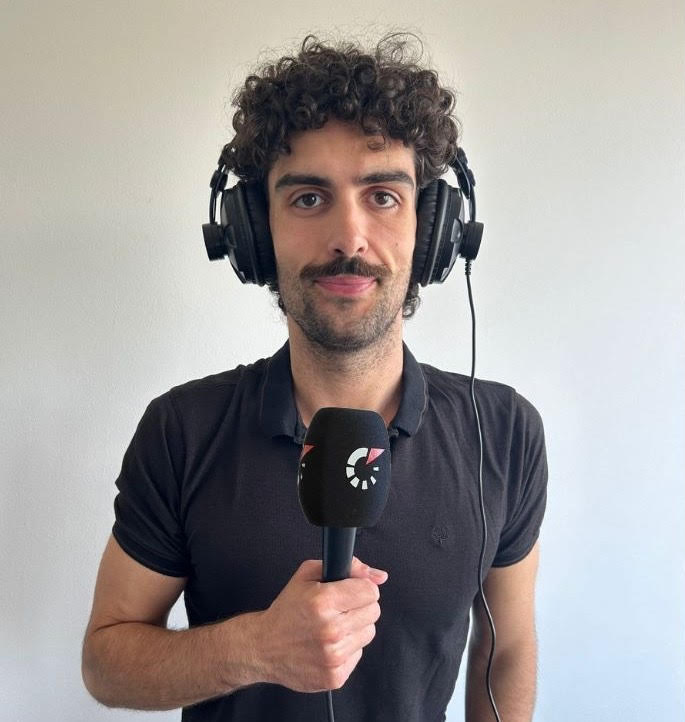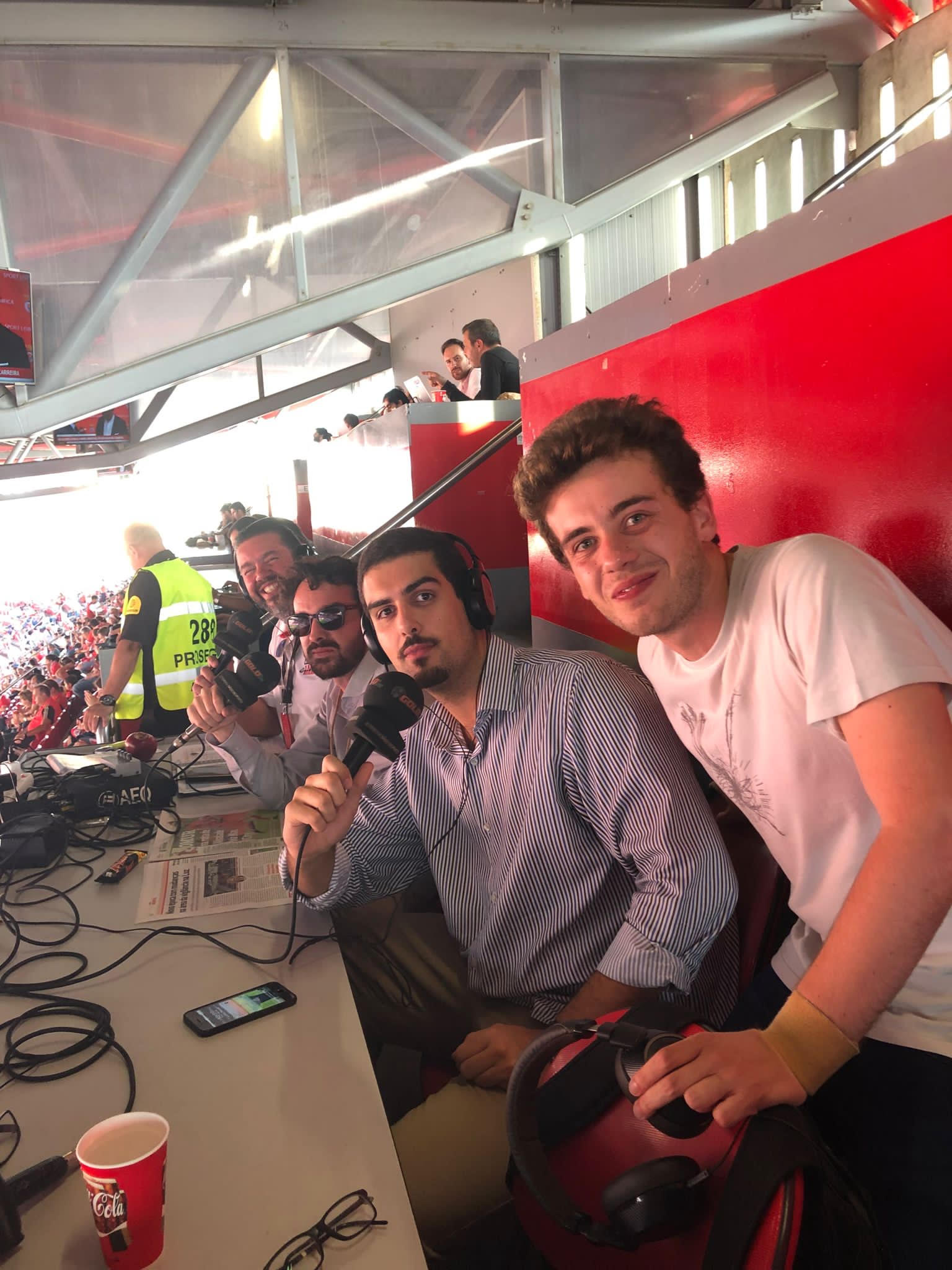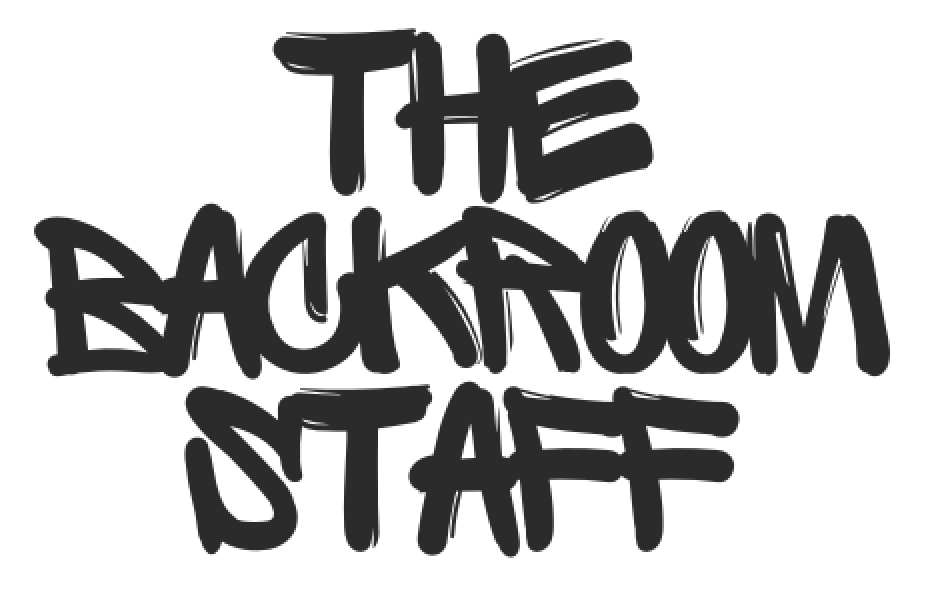Commentator feels like one of the coolest jobs in football. Watching football and talking about it sounds pretty good!
But it’s not just watching the game, there’s real pressure to perform - to entertain and inform live. For many fans, the commentary can make or break a broadcast. Done well, a few perfectly timed lines can become the iconic soundtrack to football’s biggest moments.
In this interview, Nacho Pranto looks back on years of commentary at Eleven/DAZN and now Flashscore. Find out what goes on behind the scenes of one of football’s most important (and audible) jobs!
The interview has been condensed and lightly edited for grammar and clarity.

[ Background in football ]
I‘m half Portuguese, half Spanish, was born in Spain but moved to Portugal when I was 5 so I’ve been around football my whole life as a fan. I would say the football culture on the Iberian Peninsula is very big!
During my studies - in Portugal - I did a workshop with Fernando Correia, a very experienced radio host and TV broadcaster. The workshop was only about a month. He taught us the basics of how to do interviews, how to broadcast, commentate and narrate a match.
After the workshop, he called me one day and asked me to come on his show! I was live for one hour on the radio commenting on the previous match day in the Portuguese league. I went on this show a couple more times before I got a call from Carlos Botto.
Carlos is another very experienced guy in radio - and for me, one of the best people in the football industry, he’s helped me a lot. He was assembling a ‘team’ to cover all the games in the first division in Portugal and the national team and asked me if I’d like to try live commentary! I was 20 years old and it felt ‘out of nowhere’. One of the others (in his team) had done the workshop with me and saw something and they’d talked about me!
My first match as a commentator was Ludogorets v Braga in the Europa League. After the match, he told me, ‘we really liked your voice, we liked the way you communicate.’ Of course there were things to improve on, things to learn but they wanted to have me on board.
I joined the team and in the next year or so, I learned so much about how to commentate on a match and how to be a sideline reporter. In the second half of the season, I started to be the main narrator of the match - the one who is actually telling the story of the match.
I really started liking it. I was going to the stadiums with all my friends. We had a really young team and it was super fun - lots of us were 21, 22, 23 years old and then a few more experienced guys over 40 who became like mentors and were a big help.
[ Joining DAZN & Flashscore ]
After one year in this world, Eleven Sports (now DAZN) entered Portugal and bought the TV rights to the Champions League, the Premier League, the Spanish, French and German leagues as well. So they were quite strong league wise, and they were trying to assemble a team of commentators and broadcasters that were not in the style of TV broadcast but rather people who give the viewer an experience closer to the radio - with more emotion, maybe telling the story of the match with more information and passion.
I had a few calls and managed to talk with the editor in chief of the channel and did a ‘test’ with them. I got to the Eleven Sports studio in Lisbon and the match they gave me was Real Madrid against Getafe - my team (Getafe) against the biggest team in the world. They asked if I needed time to prepare, I said, ‘no, I really don’t!’
I broadcasted for 45 minutes and it went really well. They said they liked my way of talking about the match. So that’s how it started!
After 5 years at Eleven/DAZN where the team really grew, I left Portugal for Amsterdam and left the team. While in Amsterdam, the director of Flashscore - we had worked together at DAZN - he was hiring for their Spanish and Portuguese commentating teams. He called about the Spanish opportunity before I told him I speak Portuguese too!
They hired me for the Portuguese team and for the past two years I’ve been doing Flashscore - I think they really like me!
Flashscore is a free, online platform and the type of broadcasting is more ‘radio style’. I really enjoy broadcasting on TV but I think you can’t compare it with the emotion that the radio gives and the passion you can put behind it. I’m really glad that even though I moved to a different country, I can still do this in my own language.
"They asked if I needed time to prepare, I said, ‘no, I really don’t!’"
[ What is the difference between radio and TV ‘style’? ]
On the radio, you’re telling the story for someone who is not seeing the match and have to tell everything that is happening on the pitch.
On TV you need to adapt your style a bit. Of course you also need to give the viewer the experience of being in the stadium and feeling the emotion of the match. But in the end, they are seeing exactly the same thing as you so you have to make the experience more immersive, more informative.
I don’t need to say Player A is passing to Player B on the right side of the pitch - instead I can maybe say, ‘this player used to play for a really small club, or is making his 100th appearance or any of this kind of information that can make a real difference on TV.

[ What is the scheduling like at Flashscore - how many matches do you do? How are they ‘assigned’? ]
The Portuguese team has about 15-20 commentators right now. We are one of the teams that broadcasts the most matches. The team has really grown in the past two years and become more professionalized. We have a schedule of the matches we’re going to do - everyone shares their availability and depending on this, we are assigned one or two matches a week.
[ Are certain games prioritized? ]
For me, if I’m available and free, I really don’t care about which match I’m assigned to. Of course everyone wants to broadcast the bigger matches, the Champions League or the really big clubs for instance. In our team we have a lot of people working for TV or radio channels so they aren't always available and it can be kind of tricky to cover every match.
We cover every match in the (top) Portuguese league but also, Real Madrid and Barcelona in the Spanish league, maybe the top 5 or 6 teams in the Premier League and if there are big matches in France, Germany or Italy and of course a lot of the Champions League.
[ Do you always broadcast alone or do you have a co-commentator? ]
I’m broadcasting alone - in my case, I’m broadcasting from Amsterdam and there’s no one else here with me. But, for example, those who go to the stadium, there’s usually one person narrating and one commentating the match.
[ What is the difference between ‘narrating’ and ‘commentating’? ]
Usually on a TV broadcast, there’s one guy who’s more descriptive, telling you more about what is going on on the pitch and one who’s more analytical or even more personal, telling you why something is happening.
—^interviewer’s note: usually ex-players and coaches are in the ‘commentating’ role
Since I joined Flashscore, I've been broadcasting alone and I would say during the match I’m narrating 80-90% of the time. Because no one listening is watching the match, I need to tell them exactly what is going on. Then there are times, like when a player is injured or wasting time and there’s nothing to ‘tell’ - in these moments you can add fun facts, or give more of a personal view of what I see on the pitch.
Or, if there are consistent patterns of play from one team, you can explain in a way that the listener can understand, or have a more graphic view in their minds about what is happening on the pitch.
[ Do you have any information on the audiences at Flashscore - who is listening? ]
We have the number of unique listeners and the number of listeners that stayed with us throughout the match and some numbers like this.
There are so many different ways to watch football nowadays, some more legal, some less legal. But we still get quite a lot of listeners. Maybe some of them can’t watch the match, or are driving or on a trip, I don’t know but this is one of the easiest ways to follow because it’s personalized in your own language which is really cool. If you go for a stream for example, you often don’t get them in your own language or the quality of the stream is poor and that can be a struggle.
Flashscore is a free service and to be honest, I was a bit shocked with the amount of people listening! Even if the teams are not so ‘interesting’ or the match is not good, we still have amazing numbers and that gives us a lot of confidence to know that the job that we're doing is not going unnoticed.
"we have amazing numbers and that gives us a lot of confidence to know that the job that we're doing is not going unnoticed"
[ Can listeners see it’s you doing the commentary or are you ‘anonymous’? ]
Not during the transmission but if you go to the Flashscore Portugal social media, we announce the broadcaster for every match.
People have interacted with me on Twitter, especially when I was working for DAZN - they promoted a lot and encouraged interaction from the viewers. It’s fun to interact live - I’ve named people who commented on the live feed and everyone likes this. It’s a way to get a little closer to whoever is listening to you.
[ How is the feedback from listeners? ]
Lately, probably a bit less. I had more at DAZN because we were interacting live with our viewers back then. Some matches you get 10 or 15 people saying, ‘we really like you’ or ‘you suck’ or whatever. You have to listen to everything in the end and know how to deal with that.
[ Have you had internet issues or lost connection during a match? ]
More than once, more than twice - we don’t control everything!
One of the last times that this happened, in Amsterdam there was a crazy storm, super windy, raining cats and dogs the entire day - I was thinking I’m going to be in trouble if the connection isn’t good! I tried taking all the devices off the WiFi at home to have maximum strength for my laptop. In the end, we still had a couple technical issues where we went offline.
It happens and we communicate well with the team to say hey, there’s a technical issue. Sometimes it’s not with us (the commentators) but there’s a problem from the other side (Flashscore). It’s not common but if it happens, they just let us know we're not online and try to get back on track whenever possible.
[ Are there rules about ‘neutral language’? What about being unbiased vs showing your support for a team? ]
Yes - if I broadcast the team I support (which has happened), you have to be completely unbiased. If my team concedes a goal, I have to scream like it’s the final of the Champions League for the other team. You have to - it’s the most professional thing you can do.
For the national team, it’s very different because we’re supposed to be biased! We broadcast for the Portuguese audience, I would say 99% of our listeners for these games are Portuguese. They won’t be pleased to listen to you celebrating a goal by the other team.
There are also some words, some football terms that you really have to pay attention to. What you say and the moment you say it can be misinterpreted - but that’s more about the language itself than the game.
I think whenever someone starts in this type of job - someone will try to tell you or teach you and if you make a mistake once, you’re going to make sure not to make that mistake a second time!
[ Do you mean ‘jargon’ like advanced metrics or what kinds of words? ]
No, not so much. There are things I don’t like to talk about, like the referee’s decisions because this can generate a lot of talk and controversial things.
There are also words in the Portuguese language that can be easily taken out of context. There are a lot of words that you can’t say live - not only cuss words obviously - but others that can be wrongly perceived by the listener. So I try to avoid them and find synonyms or different phrases.
[ How do you prepare for matches? ]
It depends from team to team. The bigger teams, usually you see a lot more of their matches and usually know more or less their dynamics, their tactics and generally what to expect from them.
For teams that I don’t follow as much, probably I’ll watch one or two matches to get ‘up to date’. I like to have a lot of information about the players - things like their previous teams, age, stats and all those little things. It’s interesting to know and it can complement my broadcasting a lot to give this information about a player, coach or team. I prepare all this information beforehand in a ‘cheat sheet’ so I have everything available during my broadcast.
I’d say on average you have 2 hours broadcasting plus maybe 2-4 hours preparation. If you like to watch football, the job gets a lot easier because it’s not work, it’s something you enjoy!
[ Does it get repetitive or boring when it’s two teams you don’t care about? ]
One of the things I really like doing while watching a match is deconstructing the match. The way I see it, the match doesn’t just have two halves, there are a lot of different moments, different phases where teams are trying to understand each other. The way I watch football, I look for this every match, it’s a different battle for both teams so it doesn’t really matter if you’ve seen that team, coach or players playing 100 times, 200 times or 500 times. At the end of the day, you’re going to see a unique event. Maybe there will be similarities in some ways but every match can give you something different.
For me, football is one of the most interesting sports because it’s a sport where the weaker team has the best chance to win against a stronger team, maybe more than any other sport.
[ How might someone get started in this field? ]
Background wise, I wouldn’t say there’s one way for you to become a commentator. (Of course if you played football at a high level, that will open a lot of doors!) If you have a passion for it and want to try, try to find a workshop or a course that can give you a little bit of a technical base. This might help when you approach a radio show or TV channel. See how you can get in, maybe with an internship or a training program and keep asking questions, keep learning.
You have to knock at a lot of doors but be persistent and try to keep improving and then once you get the chance, just go for it - don’t be afraid of making a mistake.
